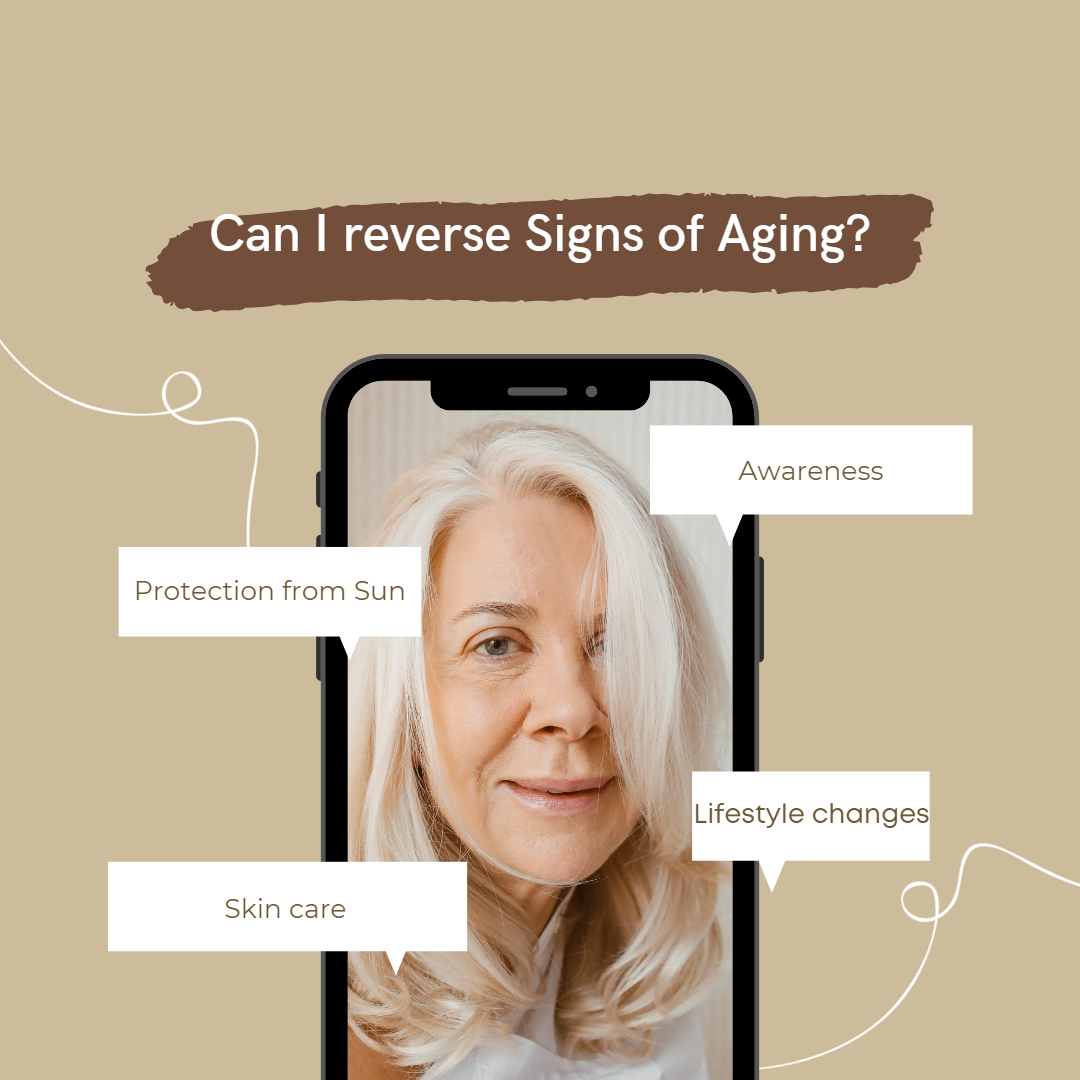Aging is the process that begins the moment, we are born and that affects every organ of our body but as skin is the most visible organ of our body, the effects of aging are most evident on the skin. This aging process had been a keen topic of interest for decades. The question still stands-can skin aging be prevented or reversed? The answer is yes, to a large extent!
Is my skin aging? What are signs of aging skin?
- Skin thinning: Collagen is the building block of our skin which gives it the ability to repair itself. As we age, our body produces less collagen, which results in thinning of skin over the years.1
- Paleness in skin: As we age the outermost layer of skin i.e., epidermis becomes thin. There is also a decline in number of melanin (pigment imparting colour to skin) containing cells (melanocytes) over the years. This results in skin appearing pale and translucent.
- Loss of elasticity: Youthful skin contains abundant intrinsic factors such as Collagen, Elastin and Hyaluronic acid. These are responsible for imparting turgor and elasticity to the skin. As we age, the skin loses these factors leading to sagging.
- Age spots: The most critical factor leading to age spots is prolonged exposure to Sun which causes increased accumulation of melanin in certain specific areas. The free radicals generated by UV light during prolonged exposure to Sun also damage collagen in the skin leading to fine lines and wrinkles. Though this can be observed in younger people as well but people over 40 years are more susceptible to this skin condition.
How can I reduce signs of aging on my skin?
The signs of aging are a result of both internal and external factors, thus a holistic approach encompassing below should be adopted to stay and feel younger.
Skin care: It is critical to use skin care products that suit your skin type and condition. Generally, skin care products such as serums containing Vitamin C have been proven to have beneficial effects in reversing the signs of aging. Vitamin C helps in lightening of skin dyspigmentation, anti-aging and sun protection2. Other such ingredient that is rich in antioxidant and help in healing the signs of damage in an aging skin is Aloe vera gel. Research has indicated that extracts of Aloe vera reverse the degenerative skin changes observed in aging skin by stimulating the synthesis of collagen and elastin fibres3. Hyaluronic acid is another such ingredient, when used in skin care it contributes to restoring skin hydration thus imparting shine to dry and damaged skin.
Protect your skin from prolonged exposure to Sun: According to American Academy of Dermatology Association, any part of body exposed to Sun should be covered by a water-resistant Sunscreen with SPF 30 and over. When feasible, it is advisable to use wide rimmed hats, sunglasses, UPF clothing to help protect skin from the hazardous effects of UV radiations.
Regulated Lifestyle: Free radicals are the most critical factor responsible for the aging process. Best prevention strategy against the harmful impact of these free radicals is to effectively manage your lifestyle. Some of the suggested lifestyle changes are calorie restriction, physical exercise, reduced stress along with a balanced nutritional diet that incudes food rich in antioxidants such as carotenoids, tocopherols, flavonoids, vitamins (A, C, D and E), omega-3-fatty acids, fermented foods rich in probiotics etc.
References:
- Gancevaciene R. et al, Skin anti-aging strategies. Dermatoendocrinol. 2012 Jul 1; 4(3): 308–319.
- Schagen S.K. et al. Discovering the link between nutrition and skin aging. Dermatoendocrinol. 2012 Jul 1; 4(3): 298–307.
- Danhof I.E., Potential reversal of chronological and photo-aging of the skin by topical application of natural substances. Spring 1993.

